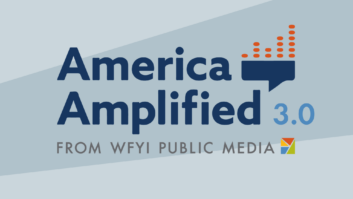Those in power are eating away at the First Amendment and the fourth estate while telling us they are offering more protection.
Historically, the FCC’s mandate was to stay out of programming. Times have changed and clearly the commission is involved in programming, through the so-called indecency regulations, which are being hammered home and strengthened by the Republican-controlled Congress and the Bush Administration.
Now, matters have spread to the public broadcasting arena. The Corporation for Public Broadcasting, created by Congress to grant federal money to public radio and TV and to act as a buffer between the two groups, has hired Ken Ferree as executive vice president and COO. He will serve as acting president while the CPB board searches for a successor, and he has said he wants the top job.
Ferree is ex-chief of the Mass Media Bureau, brought into the commission by former chairman Michael Powell, a Republican.
Next, CPB, a quasi-federal entity supposedly not involved in programming, creates an Ombudsmen’s office. The stated purpose is to insulate public broadcasting from congressional and administration critics; but, as CPB itself stated, the purpose is also to make sure programming is “fair and balanced.”
Just three days later, CPB President Kathleen Cox, in the job for only nine months, resigns abruptly. The Washington Post quotes former CPB President Robert Coonrod as saying he had groomed Cox for the job for four years. The Post appropriately asks why someone groomed for four years quits after less than one, but doesn’t get an answer. Even the president of PBS, Pat Mitchell, was surprised.
Mitchell stated of Cox: “She recognized the need for CPB to remain a strong heat shield to protect public media from political pressure.”
Jeff Chester, executive director of advocacy group Center for Digital Democracy, told the Post, “The fact is she was basically an apolitical bureaucrat in an incredibly polarized agency.”
National Public Radio took it upon itself to establish an ombudsman, an unusual but welcome step for a U.S. broadcast organization. PBS is considering it after being rebuked by Education Secretary Margaret Spellings for using some of her department’s program funds on an episode of “Postcards From Buster” in which the title character, an animated rabbit, visits children in Vermont who are living with their two mothers. Spellings demanded, according to the Post, that all mention of Buster be removed from that episode, which PBS subsequently announced it would not distribute.
It’s appropriate for the networks to have ombudsmen. It’s appropriate that public radio and television initiated these offices on their own.
It’s inappropriate and transparent for Congress and the administration, through Republican board members, to force it on CPB.












